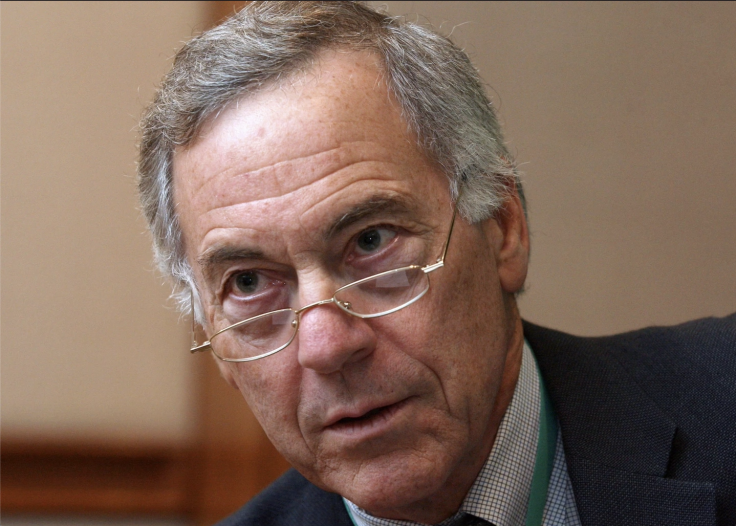
Perhaps the most salient campaign proposal from Javier Milei, now Argentina's president-elect, is dollarizing its economy.
Most Argentine voters have economic issues at the top of their list of concerns, with an economy ridden by decades-long inflation -currently running at 140 percent- and a currency that has lost most of its purchasing power in the past years.
In a society where saving in US dollars is a custom, this drastic proposal resonated among many. Now that Milei will effectively take over the Executive Branch in December, he will have the challenge of taking dollarization from proposal to policy.
The president-elect reiterated on Monday he plans to move ahead with the plan: "Shutting down the central bank is a moral imperative because we believe that stealing is wrong. Dollarizing is the way in which you do it, but the main goal is shutting down the central bank. Argentines will later choose their currency freely," said Milei on Monday.

One of the most vocal supporters of dollarization both in Argentina and the global scene is Steve Hanke. A professor of Applied Economics at Johns Hopkins University, he advised Argentine Pres. Carlos Menem from 1989 to 1999. He was the architect of Montenegro's dollarization in 1999, when he served as a State Counselor and as chief advisor to Pres. Milo Dukanovic. Hanke also served as an advisor to the Minister of Economy in Ecuador when it dollarized in 2001.
In an interview with The Latin Times, Hanke assured that dollarization is "feasible and desirable", listed the first measures Milei should take and analyzed the main risk he should mitigate to ensure the program's success. In fact, on Tuesday Hanke published a working paper titled "Dollarize Argentina: Abolish The BCRA," reiterating his call and saying: "There is nothing special about the Argentine case that prevents dollarization, only lack of knowledge of the correct procedures and the political authority to implement them."
- Which are the first measures he should take to begin with its dollarization program?
The first thing Milei should do is announce his intent to institute official dollarization in Argentina, and do it in the same way that I introduced the currency board in Bulgaria in 1997, when I was Pres. Stoyanov's chief adviser. We announced that the currency board would be introduced. Then, we announced that Bulgaria's monetary base would be frozen, and that the Bulgarian lev would be allowed to float for a 30-day period before we determined the exchange rate between the lev and the currency board's anchor currency, the German mark.
That same procedure should be used to determine the exchange rate between the peso and the U.S. dollar as Argentina becomes officially dollarized. This is always the process I have recommended for exchange rate determination in situations in which there is a transition from a central bank to either a currency board or a dollarized system. An interview in the New York Times, "Steve Hanke: Voice of Suharto's Guru," documents that fact.
- Do you think the magnitude of his victory increases his chances of implementing such a program?
Yes. Milei's margin of victory is stunning and should give him considerable political leverage.
- Which risks must he mitigate in order to implement the program in the smoothest way possible?
The implementation of currency reforms where I have been involved as an advisor (Argentina 1991, Estonia 1992, Lithuania 1994, Bulgaria 1997, Bosnia & Herzegovina 1997, Montenegro 1999, Ecuador 2001) have all taught me one lesson: It's necessary to proceed with implementation as a precision drill. The way to mitigate risk is to follow Hanke's 5 P's: Prior Preparation Prevents Poor Performance.
-There are studies saying that Argentina needs tens of billions of dollars to dollarize. Do you think it's feasible for the Milei team to secure such an amount?
These studies, and there are many of them, are all incorrect. I recently co-authored a paper, published by Central Banking in London, with Matt Sekerke that covers this subject in detail. Argentina is loaded with dollars. The supply of Greenbacks in safety deposit boxes and under mattresses in Argentina is massive. It's estimated to be as high as $265 billion. That's the largest stock of U.S. dollar notes outside the borders of the continental United States. As far as the studies go, they validate Hanke's 95% Rule: 95% of what you read in economics and finance is either wrong or irrelevant. The authors of these reports appear to have no experience as currency reformers.
-Do you think sufficient positive effects will be seen in the next few years so Milei's position on this issue becomes strong enough for him to increase his chances of being reelected and continue down this line?
While dollarization will deliver a huge positive confidence shock for the Argentine economy and start an economic boom, I have no crystal ball and will not venture into predictions about the next presidential election in Argentina. That would be a fool's game.
-What are the implications of tying the country's monetary policy to the US'?
The implications will all be positive. Currency crises will no longer exist. The probability of banking crises will be dramatically reduced. Economic growth will be higher than it would be if the peso was retained. Poverty will be reduced, and the probability of sovereign debt defaults will be reduced. All very positive, and rather obvious. Argentina will be mothballing one of the world's worst currencies and putting it in a museum and substituting for it the world's international currency. In the end, it's important to realize that the U.S. dollar will deliver much-needed stability in Argentina. And while stability might not be everything, everything is nothing without stability.
© 2025 Latin Times. All rights reserved. Do not reproduce without permission.





